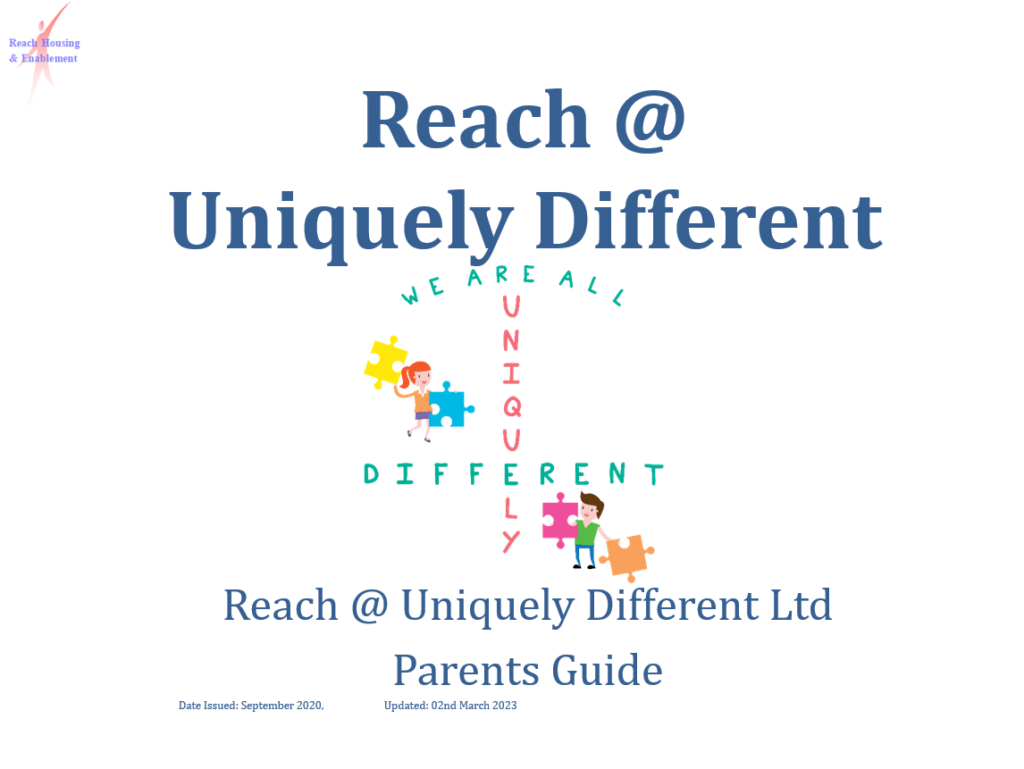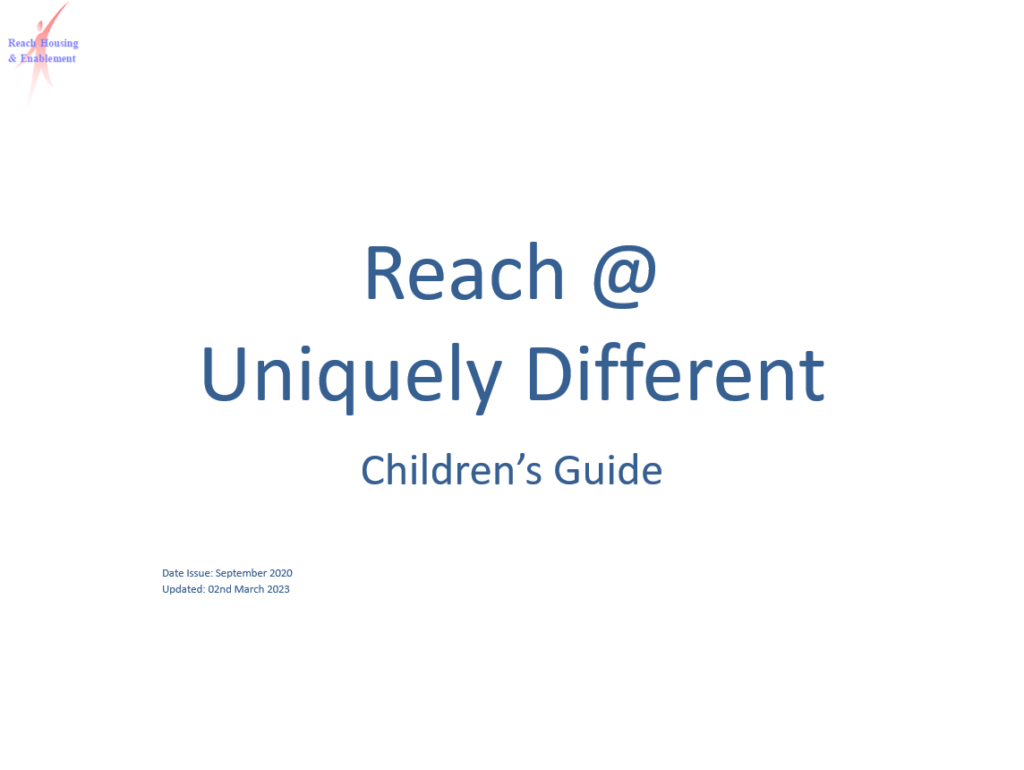
Reach provides specialist care and support to:
Children & Adults with Learning Disabilities
Children and adults with learning disabilities see, hear and understand things differently. They may have difficulty learning new information and skills and putting them to use. The most common types of learning disabilities involve problems with reading, writing, maths, reasoning, listening and speaking.
Children & Adults with Autism
Being autistic does not mean you have an illness or disease. It means your brain works in a different way from other people. It’s something you’re born with or first appears when you’re very young. If you’re autistic, you’re autistic your whole life. Being autistic does not have to stop you having a good life.
Children & Adults with Communication Disabilities
Communication difficulties cover a wide spectrum and may include physical problems with producing clear speech, difficulties in understanding spoken language and difficulties with the social aspects of communication and interaction.
Children & Adults with Complex Behavioural Needs
Complex behaviour comes in many forms, and it affects not only the person experiencing it, but also those around them. Having the support in place to help communicate, understand, and manage such behaviour can make a huge difference.
Children & Adults with Dual Learning Disabilities
The term dual or multiple exceptionality reflects the fact that an individual may have more than one issue alongside their high learning potential, for example they may have both an autism spectrum disorder and attention deficit alongside exceptional cognitive abilities.
Children & Adults with Physical Disabilities
Being autistic does not mean you have an illness or disease. It means your brain works in a A physical disability is a substantial and long-term condition affecting a part of a person’s body that impairs and limits their physical functioning, mobility, stamina or dexterity. A physical disability does not necessarily stop you from performing specific tasks but makes them more challenging.
Children & Adults with Mental Health
The term dual or multiple exceptionality reflects the fact that an individual may have more than Mental health includes our emotional, psychological, and social well-being. It affects how we think, feel, and act. It also helps determine how we handle stress, relate to others, and make choices. Mental health is important at every stage of life, from childhood and adolescence through adulthood.
Children & Adults defined as a Vulnerable Adult
We recognise that the welfare of children, young people and vulnerable adults is paramount and that they have equal rights of protection. We all have a duty of care and as professionals we will do everything we can to provide a safe and caring environment whilst supported in our care.
Reach Housing will also consider working with people with mental health, cognitive deficits, sensory and physical disabilities as a result of head injury and physical diversity.
Support Services: Whatever your needs Reach Housing endeavour to provide a home that is as individual as you are. Reach attempts to secure property via other sources to meet specific needs as opposed to offering existing housing as an only option.
We begin by working out a personalised person centred lifestyle plan of support that is devised by you, our support team and anyone else you would like to involve such as your family, social worker or advocate who can work in partnership to meet your private and personal lifestyle.
Reach then provide a support package that is tailor made to meet your individual needs. The package of support remains flexible and will be reviewed and adapted as many times as is needed to meet your changing needs. Reach is committed to working in partnership with all their tenants and do not make changes to tenants support or the services provided without consulting all tenants in the first instance.
Medical Care: All new tenants will be supported to register with a local General Practitioner and will be supported to access both primary and secondary healthcare professionals when they require treatment of any kind.
Meals & Meal Preparation: All tenants are involved in the purchasing of food items and in the preparation and cooking of meals. Reach staff have received Basic Food Hygiene training and will provide support to tenants to ensure that they remain safe and healthy in a way that promotes independence.
Cleaning: Support staff is required to engage and assist tenants in domestic and cleaning activities in order to retain a safe environment. All tenants are requested to participate in the cleaning of communal areas and will be responsible for cleaning their own rooms with support if this is required.
Laundry: Support staff will provide practical support to tenants with washing, ironing and the repair of every day clothing items and bed linen where it is agreed to do so.
Gardens: Reach Housing encourages all tenants to be involved in maintaining the garden areas.
Visitors: Your relatives and friends are welcome to visit you at anytime in your own home. Reach has an access policy to ensure that no unwanted callers gain entry to the property. There is a policy file located within each property that gives detailed information that is available to you and your representative an anytime.
Pets: Reach Housing does not object to tenants having pets, however each situation will be discussed on its individual merits e.g. tenants current responsibilities, availability of time and support needs.


Referral Process
Reach Housing accept referrals from all professionals and professional agencies. In addition we also accept referrals direct from an individual or from a family member or representative. To obtain a referral form and information pack please either: Visit our offices in person where you will receive a warm welcome, telephone us for an informal discussion or contact us via email at: info@reachhousing.com


